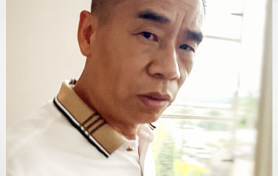477 Mass. 456 (2017) 78 N.E.3d 37, 33 A.D. Cases 967
Summary
Under Massachusetts law, an accommodation for an employee’s medical marijuana use is not per se unreasonable – despite possession of marijuana being illegal under Federal law. The employer thus has the burden to prove that a medical marijuana accommodation would pose an undue hardship to their business. The Supreme Court gave three (non-exhaustive) examples where such a hardship arises: (1) the employee’s work performance would be impaired; (2) an “unacceptably significant” safety risk is posed to the employee, their co-workers, or the public; or (3) the employee’s marijuana use would violate the employer’s statutory or contractual obligations, therefore jeopardizing the employer’s ability to conduct its business. For the third category, the Court recognized transportation employers, federal government contractors, and recipients of federal grants as employers with such statutory obligations under federal law.
Overview: Facts & Lower Courts
The plaintiff, Cristina Barbuto, used small quantities of medicinal marijuana as treatment for her Crohn’s disease. Barbuto was hired by the defendant, Advantage Sales and Marketing (ASM) in 2014.
Upon hiring Barbuto, ASM required she take a mandatory drug test. Barbuto informed her to-be supervisor at ASM that she was a qualifying medical marijuana patient under Massachusetts law, adding that she did not take the medical marijuana before work or at work. Barbuto’s supervisor informed her that her lawful use of medical marijuana would not be a problem for ASM.
Barbuto submitted a urine sample for the mandatory drug test and completed her first day of work the next week. At no point did she take marijuana at work, nor did she report to work under the influence of the drug. Following her first day of work, an ASM Human Resources representative informed Barbuto that her employment was terminated due to testing positive for marijuana. The HR representative told Barbuto that ASM “follow[s] federal law, not state law” in explaining why she was not being accommodated.
Barbuto filed a discrimination complaint in Massachusetts Superior Court, with ASM filing a motion to dismiss the complaint.[1] The Superior Court judge allowed ASM’s motion to dismiss on all counts except an invasion of privacy claim. Barbuto appealed the dismissal directly to the Supreme Judicial Court of Massachusetts.
Issues
- Is Barbuto’s use of medical marijuana to treat her Crohn’s disease a facially unreasonable accommodation, because marijuana use is a federal crime?
- Is Barbuto’s use of medical marijuana an unreasonable accommodation because it would impose an undue hardship on ASM’s business?
- Does the Massachusetts Act for the Humanitarian Medical Use of Marijuana give Barbuto an implied private cause of action against ASM for termination of employment due to the lawful use of medical marijuana?
- Was Barbuto wrongfully terminated in violation of public policy by ASM for her use of medical marijuana?
Analysis
(I) The Court held that Barbuto had demonstrated her medical marijuana was a facially reasonable accommodation.[2]
The Court rejected ASM’s argument that marijuana was per se unreasonable to accommodate because it is illegal to possess under Federal law, as Barbuto alone bore the risk of federal prosecution for the possession of marijuana.[3] In Massachusetts, “the use and possession of marijuana by a qualifying patient is as lawful as the use and possession of any other prescribed medication.”[4] The Court also rejected ASM’s public policy argument that marijuana be per se unreasonable, as “respect for Federal law” alone was insufficient grounds.[5]
Even if marijuana use were a facially unreasonable accommodation, ASM still would have owed Barbuto an obligation to seek out alternative, equally effective medication that was not prohibited by ASM’s drug policy – which ASM failed to do. This failure alone is sufficient to support a claim of handicap discrimination.[6]
The Supreme Court reversed the decision of the Superior Court to dismiss counts 1 – 3 of Barbuto’s cause of action.
(II) The Court did not rule on if accommodating Barbuto would be an undue hardship for ASM.
As the Superior Court had dismissed Barbuto’s claim as facially unreasonable, the Supreme Court left this issue to be answered by a future summary judgement motion or at trial.[7]
Upon establishing her accommodation to be facially reasonable, the evidentiary burden shifts from Barbuto to ASM. ASM could then offer evidence to prove an “undue hardship” would be imposed on their business by accommodating Barbuto’s medical marijuana use.[8]
The Supreme Court gave some (non-exhaustive) examples of potential undue hardship arising for ASM in accommodating Barbuto: if the medical marijuana impairs work performance, if an “unacceptably significant” safety risk is posed, if ASM’s contractual or statutory obligations would be violated by Barbuto’s marijuana use – thus jeopardizing ASM’s ability to perform its business.[9]
The Supreme Court gave the specific example of a transportation employer. As they are subject to United States Department of Transportations regulations which prohibit “safety-sensitive” employees from using marijuana, a transportation employer’s statutory obligations would thus be violated by an accommodation for marijuana use.[10] In that case, there would be undue hardship. For similar reasons, Federal government contractors and recipients of Federal grants would also face undue hardship in accommodating marijuana use. Such an accommodation is prohibited by the Federal Drug Free Workplace Act.
(III) There is no private cause of action arising under Massachusetts’ medical marijuana legislation where a remedy is already provided for under discrimination law.
The Supreme Court found that extant law prohibiting handicap discrimination rendered any private cause of action unnecessary to protect a patient from being unjustly terminated.[11]
The Supreme Court thus upheld the Superior Court’s dismissal of counts 4 and 5 of Barbuto’s cause of action.
(IV) Barbuto had no separate cause of action for wrongful termination based on violation of public policy.
The Supreme Court held there was “no need and no reason to recognize” this cause of action, as handicap discrimination law always provides recourse for an employee in Barbuto’s position.[12]
Wrongful termination on public policy grounds remains a narrow exception to the general rule: employers may terminate at-will employees with or without cause as they see fit. Since the remedy is already provided for under discrimination law, the Supreme Court refused to expand the public policy exception in the case.[13]
The Superior Court’s dismissal of count 6 of Barbuto’s cause of action was upheld.
_____
[1](1) handicap discrimination, in violation of G. L. c. 151B, § 4 (16); (2) interference with her right to be protected from handicap discrimination, in violation of G. L. c. 151B, § 4 (4A); (3) aiding and abetting ASM in committing handicap discrimination, in violation of G. L. c. 151B, § 4 (5); (4) invasion of privacy, in violation of G. L. c. 214, § 1B; (5) denial of the “right or privilege” to use marijuana lawfully as a registered patient to treat a debilitating medical condition, in violation of the medical marijuana act; and (6) violation of public policy by terminating the plaintiff for lawfully using marijuana for medicinal purposes
[2] Barbuto, p. 467
[3] p 464
[4] p 464
[5] p 465
[6] p 466
[7] p 468
[8] p 467
[9] p 467 – 8
[10] p 467
[11] p 470
[12] p 471
[13] p 471

Andrew Easto
Law student graduating from the University of Toronto in 2022. My interest areas are wide ranging, including Privacy & Cybersecurity, Tax, Insolvency Law, and Cannabis Law. I am passionate about advocacy in all forms, and look forward to continue building on my experience in dispute resolution.

















